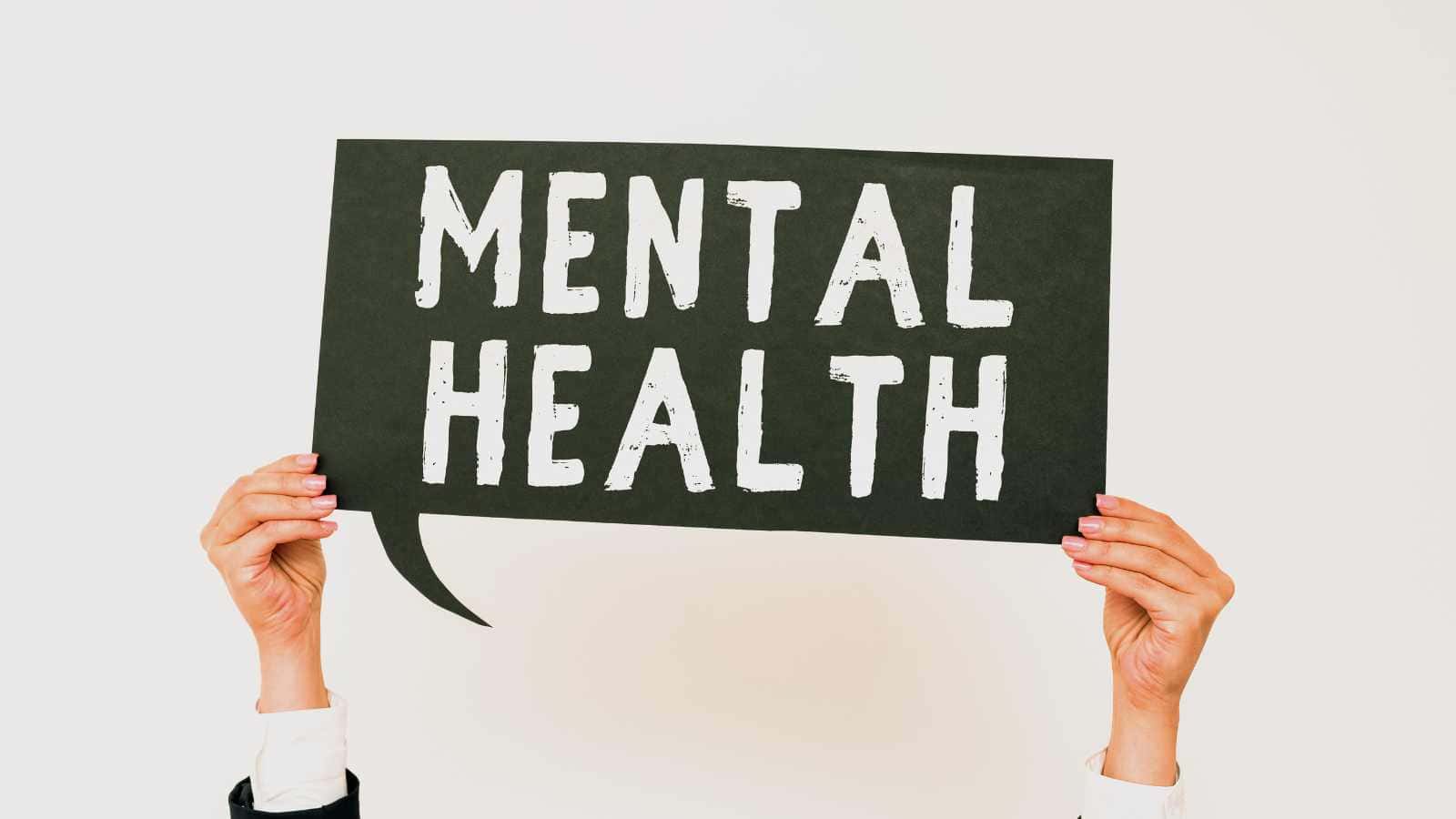9 Ways to Protect Your Peace in a World That Drains You
Ever feel like your brain has too many tabs open, and one of them is playing circus music on a loop?
You’re not just imagining it. We’re living in a world that seems custom-built to drain our energy, and the data backs it up. According to CNN, a record 44% of employees worldwide experience significant stress daily. That’s nearly half of us walking around feeling frazzled.
Protecting your peace isn’t some fluffy, nice-to-have wellness trend anymore; it’s a critical survival skill for 2025. It’s about building a mental fortress to keep the chaos out so you can actually enjoy your life.
But how do you do that when your phone is buzzing, your boss needs that “one quick thing,” and your social calendar is overflowing?
Don’t worry, I’ve got you. Here are nine practical, science-backed ways to reclaim your calm and protect your peace, without needing to move to a monastery.
Defend Your Sleep Like It’s Your Job

Why it matters: You know that feeling when you’re tired and even the smallest thing feels like a personal attack? That’s your brain on poor sleep. Research shows a direct, powerful link between sleep problems and burnout.
PubMed notes that in high-stress fields, insomnia rates can hit a staggering 43.6%, and those sleep issues are a one-way ticket to feeling emotionally exhausted.
How to do it:
- Create a non-negotiable wind-down routine. Give yourself 60-90 minutes before bed away from screens and stressful conversations. I started reading a fiction book during this time, and it’s been a game-changer.
- Stick to a consistent sleep schedule. Yes, even on weekends. It helps regulate your body’s internal clock.
- Make your bedroom a sleep sanctuary. Keep it dark, cool, and quiet. Your bed is for sleeping, not for doomscrolling or finishing up work emails.
Build Your Personal Support Squad

Trying to handle everything alone is a recipe for disaster. Studies consistently show that having strong, reciprocal social support is a powerful shield against burnout.
People with poor social connections have significantly higher odds of feeling emotionally drained.
How to do it:
- Identify your “anchor” people. Who are the 2-3 people you can call when things get tough? Schedule regular check-ins with them, even if it’s just a 15-minute call.
- Be specific when you need help. Instead of a vague “I’m stressed,” try, “Can I get 10 minutes to vent about a frustrating meeting?” It’s easier for people to help when they know exactly what you need.
- Find your tribe. Joining groups with people who share your experiences, like professional cohorts or caregiver support communities, can make you feel way less isolated.
Redesign Your Work Boundaries (Before They Dissolve)

With historically high stress levels at work, especially for hybrid workers, the lines between “work you” and “home you” have blurred into a single, exhausted person. A significant cause of burnout is having unclear roles and constant high emotional demands.
How to do it:
- Create “do not disturb” blocks. Schedule time for deep work where you turn off notifications. Let your team know you’re offline to focus.
- Fake a commute. If you work from home, create a ritual that signals the end of the workday. It could be a walk around the block, changing your clothes, or listening to a specific podcast. It helps your brain switch off.
- Put it in writing. Work with your manager to clarify your exact responsibilities and workload. This isn’t being difficult; it’s being clear.
Use Social Media Smarter, Not Harder

Here’s a fascinating find—a recent study found that it’s not just scrolling that messes with our heads. The act of frequently posting on social media was linked to worse mental health outcomes a year later, as confirmed by UCL News.
This suggests the pressure of public performance is the real peace-stealer.
How to do it:
- Post less, connect more. Shift your energy from public posts to private messages with close friends. Share that funny meme or life update with people who actually care.
- Curate your feed ruthlessly. Unfollow, mute, or block any account that makes you feel agitated or less-than. Your feed should feel like a cozy, inspiring space, not a battlefield of comparison.
- Schedule a digital sabbath. Take one day (or even just an afternoon) a week completely off social media. Your brain will thank you for the break.
Create a “Friction Plan” for Your Drains

We all have them—the recurring situations or people that suck the life out of us. Research shows that structural stressors like role conflict or toxic environments are major predictors of burnout.
How to do it:
- Identify your top 3 drains. Is it last-minute requests from a coworker? A meeting that could have been an email? A “friend” who only complains? Name them.
- Add friction. Create systems to make these drains harder to access. This could be a standardized email response for certain requests, insisting on an agenda for every meeting, or setting time limits on phone calls with energy vampires.
- Plan your post-drain recovery. If you can’t avoid a stressful interaction, have a plan for immediately after. Go for a quick walk, call a supportive friend, or do a 5-minute journal dump to get it out of your system.
Master the Micro-Recovery Break

Why it matters: Our bodies and minds aren’t built for non-stop demand. Running on fumes all day increases your allostatic load—the wear and tear on your body from chronic stress. Taking short, structured breaks helps reset your nervous system.
How to do it:
Treat recovery as part of your performance. These aren’t lazy breaks; they are strategic resets that make your work time more effective.
Try the 50/10 rule. Work with intense focus for 50 minutes, then take a 10-minute break to do something completely different. Stretch, walk outside, or just stare out the window.
Use your breath. When you feel overwhelmed, try the 4-7-8 breathing technique. Inhale for 4 seconds, hold for 7, and exhale for 8. Just a few rounds can bring your heart rate down.
Also in MSN: 10 Grounding Practices That Calm Anxiety Instantly
Reinvest in Meaning and Mastery

Feeling like your work doesn’t matter is a fast track to burnout. One of its key dimensions is a diminished sense of personal accomplishment. In contrast, engaged employees who feel a sense of purpose and mastery are far less likely to report high stress.
How to do it:
- Carve out time for your strengths. Try to spend at least 10-20% of your week on tasks you’re good at and that create visible value. It feels good to be good at things!
- Track your small wins. Keep a running list of your accomplishments, no matter how minor. Did you solve a tricky problem? Did you get positive feedback? Write it down to remind yourself of your impact.
- Seek out learning. Look for opportunities to grow your skills. Gaining competence and autonomy is a powerful antidote to feeling stuck and powerless.
Use Mental Health Support Early and Shamelessly

In high-strain environments, rates of anxiety and depression can be alarmingly high. Many of us wait until we’re at a breaking point to seek help, but early intervention makes a huge difference.
How to do it:
- Know the signs. If you’ve been feeling down, anxious, or “off” for more than two weeks and it’s affecting your daily life, it’s time to talk to someone.
- Use your resources. Check if your employer offers an Employee Assistance Program (EAP) for free, confidential counseling.
- Think of it like going to the gym. Seeing a therapist isn’t a sign of weakness; it’s a proactive way to build mental fitness. IMO, it’s one of the best investments you can make in yourself.
Practice Good “Input Hygiene”

Just like you wouldn’t eat junk food all day and expect to feel good, you can’t consume a diet of outrage, conflict, and non-stop notifications and expect to feel peaceful. With daily stress at record highs, controlling your inputs is a powerful way to lower your cognitive load.
How to do it:
- Start your day analog. Before you touch your phone, do something for yourself. Drink a glass of water, stretch for five minutes, or just look out the window.
- Timebox your news consumption. Set a timer for 15 minutes to catch up on headlines, then close the tab. Disable all news alerts on your phone.
- Shield your focus. When you need to concentrate, put your phone in another room and close all unnecessary tabs. Protect your attention like the precious resource it is.
Conclusion

Let’s be real: the world isn’t going to get less demanding. That means the responsibility for protecting your peace falls on you. It’s not about adding more to your to-do list; it’s about making deliberate, evidence-backed choices every day—from defending your sleep to curating your social feed—that put your well-being first.
So, what’s the one thing you can do this week to build your fortress of peace? Maybe it’s scheduling a 10-minute “do nothing” break or finally muting that one account that always gets under your skin. Start small. Your calm, centered, and far less drained future self will be so glad you did.
Why investing for retirement is so important for women (and how to do it)

Why investing for retirement is so important for women (and how to do it)
Retirement planning can be challenging, especially for women who face unique obstacles such as the wage gap, caregiving responsibilities, and a longer life expectancy. It’s essential for women to educate themselves on financial literacy and overcome the investing gap to achieve a comfortable and secure retirement. So, let’s talk about why investing for retirement is important for women and how to start on this journey towards financial freedom.
science Tells us What to Expect as We Age: Strategies for Thriving in Later Life

Science Tells Us What To Expect As We Age: Strategies for Thriving in Later Life
How does aging affect our bodies and minds, and how can we adapt to those differences? These are questions that pertain to us all. Aging gradually alters people over decades, a long period shaped by individuals’ economic and social circumstances, their behaviors, their neighborhoods, and other factors. Also, while people experience common physiological issues in later life, they don’t follow a well-charted, developmentally predetermined path. Let’s take a look at what science has told us to expect.







